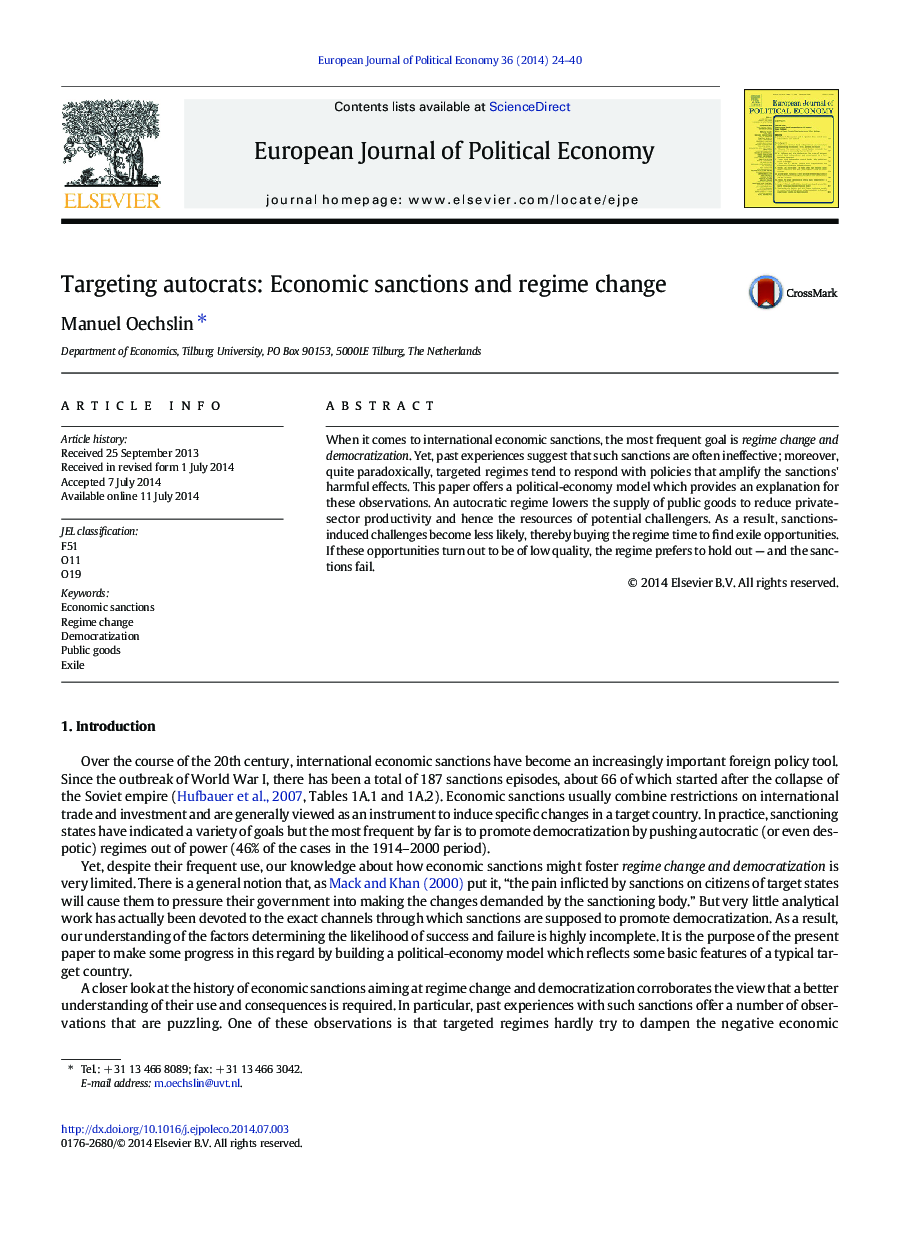| Article ID | Journal | Published Year | Pages | File Type |
|---|---|---|---|---|
| 5068057 | European Journal of Political Economy | 2014 | 17 Pages |
•The most frequent goal of international economic sanctions is regime change.•Evidence shows that targeted regimes respond in a paradoxical way to such sanctions.•They implement policies which severely amplify the sanctions' harmful effects.•I offer a model that provides an intuitive explanation for this observation.•Targeted regimes want to reduce the resources available to potential challengers.
When it comes to international economic sanctions, the most frequent goal is regime change and democratization. Yet, past experiences suggest that such sanctions are often ineffective; moreover, quite paradoxically, targeted regimes tend to respond with policies that amplify the sanctions' harmful effects. This paper offers a political-economy model which provides an explanation for these observations. An autocratic regime lowers the supply of public goods to reduce private-sector productivity and hence the resources of potential challengers. As a result, sanctions-induced challenges become less likely, thereby buying the regime time to find exile opportunities. If these opportunities turn out to be of low quality, the regime prefers to hold out — and the sanctions fail.
